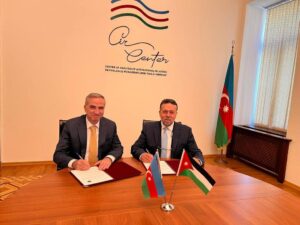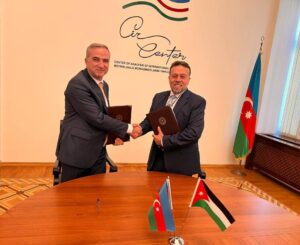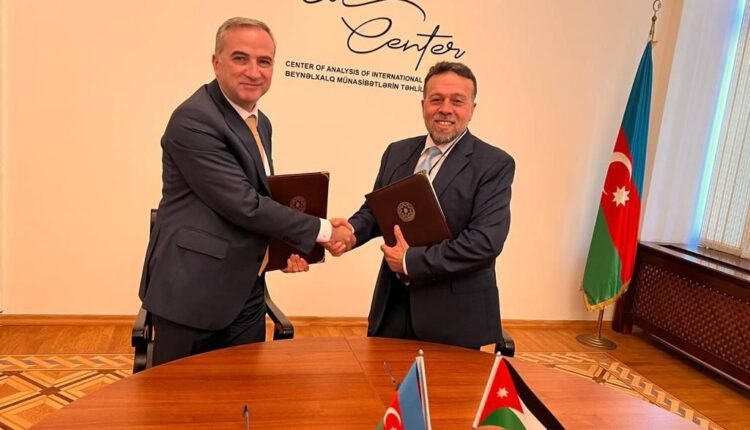The Middle East Media and Policy Studies Institute (MEMPSI) and Azerbaijan’s Center of Analysis of
Cooperation agreement signed to enhance Jordan-Azerbaijan relations
The Middle East Media and Policy Studies Institute (MEMPSI) and Azerbaijan’s Center of Analysis of international relations have signed an agreement to contribute to the development and enhancement of the longstanding friendship between Azerbaijan and Jordan.
The agreement, signed by MEMPSI President of the Board of Trustees, Mohammed Fakhri Ajlouni, and President of the Center’s Board of Directors, Farid Shafiyev, also seeks to leverage the expertise of the institute in the fields of political and media research and studies.
Emphasizing collaboration, the agreement entails joint efforts, the exchange of delegations to share experiences, the enhancement of joint programs, and the organization of shared seminars and conferences. It also includes the implementation of several joint programs between the two parties over a span of five years.
Following the signing ceremony, Ajlouni expressed the increasing significance of Central Asia and the importance of forming partnerships with think tanks in the region to bridge relations and interests with these countries.
He reiterated the commitment of MEMPSI to expanding its network of relations with leading global and regional research centers in both the East and the West, saying that this expansion serves the institute’s diverse research goals and programs.
In his remarks, Shafiyev highlighted the positive impact of this agreement on the exchange of expertise and knowledge between the Center and MEMPSI, known for its regional and international prominence.
He emphasized the crucial role played by Jordan, under the leadership of His Majesty King Abdullah, and commended its wise policies in the region.
Furthermore, Shafiyev stated that the agreement would enhance mutual cooperation between the two countries, underscoring the historical roots of the political relations between Jordan and Azerbaijan, and confirming the alignment of their political positions on many common issues.




